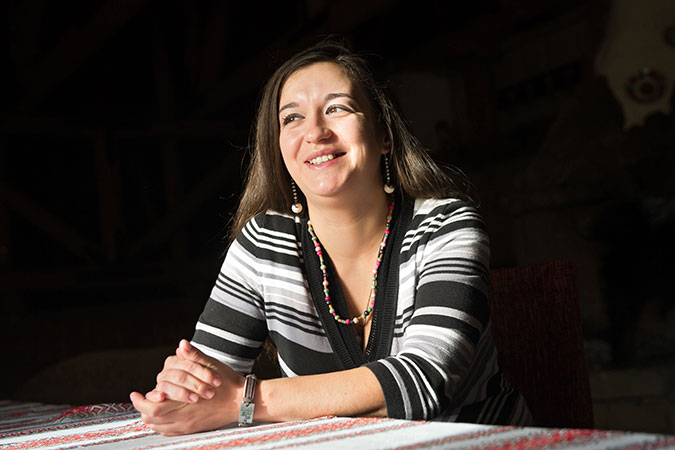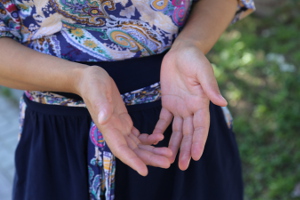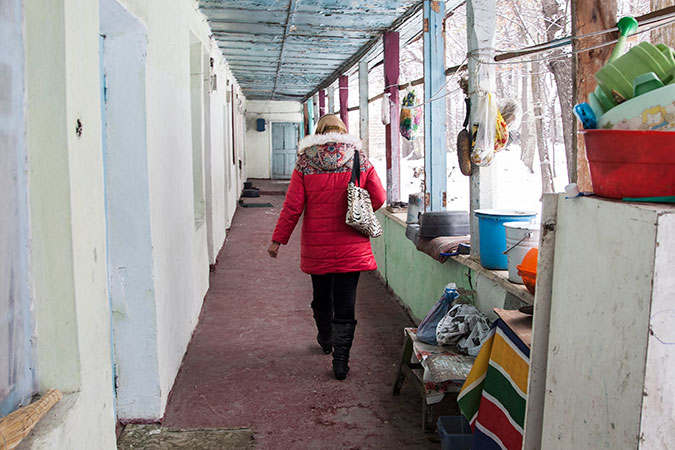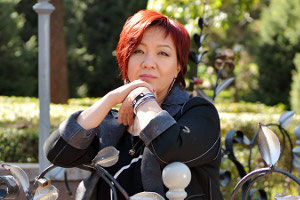Rise
Living with HIV and violence: Women of Ukraine speak out and build solidarity

Hanna Lilina found out about her HIV status during a pre-natal checkup. The 30-year-old was pregnant again, and had just left her abusive partner and fled the conflict in eastern Ukraine, with her one-year-old daughter.
“I did not know how to identify violence. Having experienced it since childhood, I didn’t even think to fight it,” says Lilina.
In Ukraine, 35 per cent of women living with HIV have experienced violence since the age of 15 (compared to 19 per cent of women who are not HIV positive), according to a 2016 study conducted by a local organization named “Positive Women”, with the support of UN Women. Like Lilina, almost a quarter of the 1,000 women surveyed could not definitively say whether they have experienced violence in their lives, although the experiences they shared were decidedly violent.
In Kyiv, the capital of Ukraine, where Lilina resettled, she joined a peer support group for women living with HIV, “Kyyanka+”. The group provides educational and awareness raising trainings where women learn how anti-retroviral therapy works, how to cope with the diagnosis and live with their HIV positive status, and how to best disclose it to others. Read more►
More stories
In the words of Aliya Assanova: “I encourage women who are subject to violence to speak out”
Aliya Assanova, 32, was kidnapped from her orphanage at the age of 18 and forced to marry. She endured an abusive marriage for more than 10 years. As a mother of seven, she managed to break the cycle of violence with support from the UN Women Project, “Kazakhstan Free from Violence,” which is implemented together with the General Prosecutor’s office. The Project team provided her with legal, medical and psycho-social support so she can recover from her trauma. “Now that I know such services exist, I am aware of my rights. I can also support women who are in the same situation. I will start working with girls from my orphanage to inform them about their rights and protect them from violence as much as I can,” says Assanova. Read more►
In the words of Luiza Karimova: “We were sex slaves”
Originally from Tashkent, Uzbekistan, Luiza Karimova left her son with her family and travelled to Osh, Kyrgyzstan to find work. In Kyrgyzstan, she was sold into sex slavery and trafficked into Dubai. After 18 months, she was arrested and sent to jail. Today, Karimova works with Podruga, an organization based in Osh, Kyrgyzstan, which is supported by UN Women. Podruga works rise against violence toward women and assists women subjected to sex and drug trafficking.
“I was a 22-year-old single mother, desperate for work when I left my son with family and travelled to Osh to find work.” Read more►
From where I stand: “We are not the ones to be shamed! Our attackers should be ashamed and prosecuted!”
Dina Smailova, survivor of gang rape, decided to break her silence 25 years after the attack. Today, she leads the national movement against sexual violence in Kazakhstan, with support from UN Women. “Our movement helped other survivors of sexual abuse break their silence, report the abuse and win their cases,” says Smailova. Read more►


